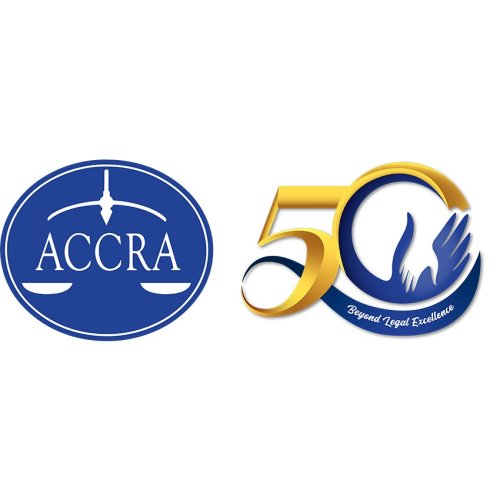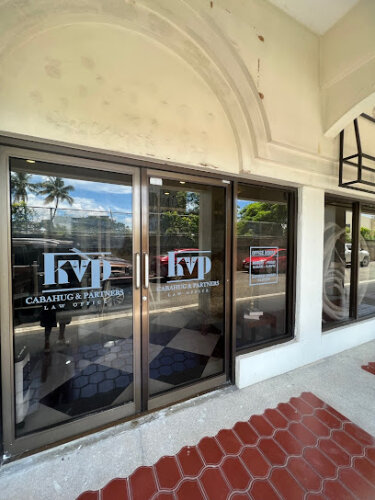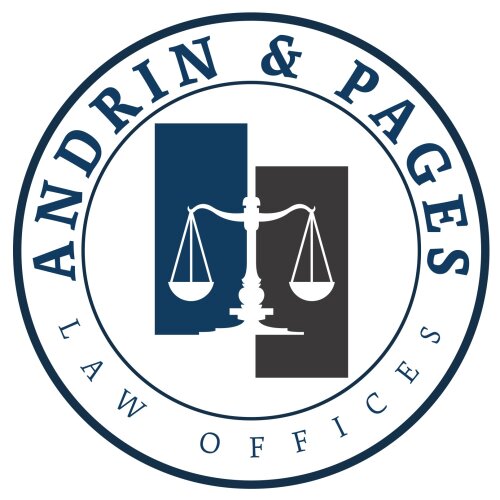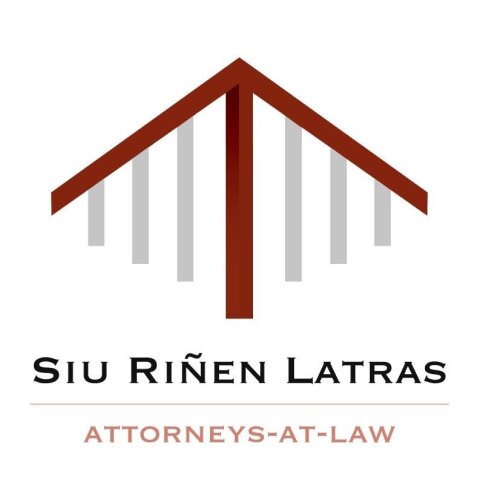Best Conveyancing Lawyers in Cebu City
Share your needs with us, get contacted by law firms.
Free. Takes 2 min.
Free Guide to Hiring a Real Estate Lawyer
List of the best lawyers in Cebu City, Philippines
About Conveyancing Law in Cebu City, Philippines
Conveyancing refers to the legal process of transferring property ownership from one person to another. In Cebu City, as in the rest of the Philippines, conveyancing involves a series of steps to ensure that a property transaction complies with all applicable laws and regulations. Conveyancing covers both the purchase and sale of real estate, as well as transactions involving donations, inheritance, or other forms of property transfer. The process involves preparing, verifying, and filing documents, performing due diligence checks, and ensuring that all taxes and fees are properly settled. In Cebu City, conveyancing is subject to national laws, such as the Civil Code of the Philippines and Presidential Decree No. 1529 (Property Registration Decree), as well as specific local ordinances and regulations issued by the local government and government agencies.
Why You May Need a Lawyer
Many individuals seek legal assistance for conveyancing to avoid potential pitfalls and ensure a smooth transaction. Common situations that may require help from a lawyer include:
- Verifying that the property title is legitimate, clean, and free from encumbrances or liens.
- Drafting or reviewing contracts of sale or deed of absolute sale.
- Guiding both buyers and sellers through the proper transfer of title with government agencies such as the Registry of Deeds and Bureau of Internal Revenue.
- Assisting with the payment and computation of taxes related to the property transaction, such as Capital Gains Tax, Documentary Stamp Tax, Transfer Tax, and Registration Fees.
- Resolving disputes over property boundaries, rights of way, or questionable ownership claims.
- Handling situations involving inherited property or properties subject to extrajudicial settlement among heirs.
- Ensuring compliance with local zoning codes or restrictions specific to Cebu City.
- Protecting your interests during negotiations, especially in cases that are complex or involve significant investments.
Local Laws Overview
The conveyancing process in Cebu City, Philippines is governed by both national and local laws. Some of the key legal frameworks include:
- Civil Code of the Philippines - Governs the rules on sales, donations, and inheritance of property.
- Presidential Decree No. 1529 (Property Registration Decree) - Governs the system of registration of land titles through the Torrens system.
- Local Government Code - Provides municipalities and cities, such as Cebu City, the authority to impose real property taxes and local transfer taxes.
- Bureau of Internal Revenue (BIR) Regulations - Covers the tax implications on the transfer of property, including capital gains and documentary stamp taxes.
- Zoning and Land Use Regulations - Local ordinances in Cebu City may affect permissible use of land and requirements for different types of property transactions.
Typically, conveyancing requires coordination with government offices such as the Registry of Deeds, Cebu City Assessor’s Office, Treasurer’s Office, and the BIR for payment of relevant taxes and fees. Documentation requirements and procedures are detailed and must be complied with fully to avoid penalties, delays, or disputes.
Frequently Asked Questions
What is the role of a lawyer in property conveyancing?
A lawyer's primary role is to safeguard your interests by performing due diligence, ensuring the authenticity of documents, drafting and reviewing contracts, calculating taxes, and guiding you through the legal requirements of property transfer.
How long does the conveyancing process take in Cebu City?
The process can take anywhere from a few weeks to several months, depending on the complexity of the transaction and how quickly all documents and requirements are fulfilled.
Can I do conveyancing without a lawyer?
While legally possible, it is highly discouraged due to the risks involved, such as document fraud, unpaid taxes, or errors that can invalidate the transaction or result in additional costs.
What documents are needed for property transfer?
Typical documents include the original title (Transfer Certificate of Title or Condominium Certificate of Title), Deed of Absolute Sale, tax clearances, IDs, and receipts of paid taxes. Additional requirements may apply based on the transaction type.
What taxes and fees do I need to pay?
Main taxes and fees include Capital Gains Tax, Documentary Stamp Tax, Transfer Tax, Registration Fee, and local real property tax. Fees vary based on property value and locality.
How do I check if a property title is clean?
You can check with the Registry of Deeds for any encumbrances, liens, or adverse claims. A lawyer can assist by conducting a thorough due diligence review and verifying the authenticity of documents.
What is the difference between an extrajudicial and judicial settlement of estate?
An extrajudicial settlement is a process among heirs for properties without disputes, done outside of court. A judicial settlement is required if there are conflicts or if minors are involved, and this must go through the courts.
What should I do if there are disputes regarding the property?
Consult a lawyer immediately. A legal professional can negotiate on your behalf, initiate mediation, or file the necessary cases in court if required.
Are foreigners allowed to buy land in Cebu City?
Foreigners cannot own land in the Philippines, including Cebu City, but may own condominium units under certain conditions. Consult a lawyer for advice in transactions involving foreign nationals.
How do I transfer ownership of a property inherited from a deceased relative?
Heirs must execute an extrajudicial or judicial settlement, pay estate taxes, secure a Certificate Authorizing Registration from the BIR, and process the transfer with the Registry of Deeds. Legal guidance is highly recommended to ensure compliance.
Additional Resources
If you are seeking information or assistance regarding conveyancing in Cebu City, the following resources can be helpful:
- Registry of Deeds Cebu City - Handles registration of property transactions and verification of land titles.
- Bureau of Internal Revenue (BIR) - Revenue District Office - Oversees tax payments related to property transfers.
- Cebu City Assessor's Office - Provides assessments and tax declarations for properties.
- Cebu City Treasurer’s Office - Accepts payments for local transfer taxes and other fees.
- Integrated Bar of the Philippines (Cebu City Chapter) - Can help you find a qualified lawyer or provide legal aid.
- Philippine Regulatory and Government Websites - For forms, procedural guides, and contact information.
Next Steps
If you need legal assistance in conveyancing within Cebu City, here are suggested next steps:
- Gather all documents pertaining to your property transaction.
- Consult a licensed Cebu City lawyer who specializes in real estate or conveyancing law.
- Clarify your goals and concerns with your legal counsel for focused advice.
- Visit the relevant government offices for initial inquiries, if necessary, or let your lawyer handle government submissions.
- Follow your lawyer's advice regarding due diligence checks, tax computations, contract drafting, and submission processes.
- Keep all receipts, certifications, and correspondences for your records.
Dealing with property conveyancing can be complex, but with careful planning and the assistance of a qualified lawyer, you can ensure that your transaction is secure, legal, and hassle-free.
Lawzana helps you find the best lawyers and law firms in Cebu City through a curated and pre-screened list of qualified legal professionals. Our platform offers rankings and detailed profiles of attorneys and law firms, allowing you to compare based on practice areas, including Conveyancing, experience, and client feedback.
Each profile includes a description of the firm's areas of practice, client reviews, team members and partners, year of establishment, spoken languages, office locations, contact information, social media presence, and any published articles or resources. Most firms on our platform speak English and are experienced in both local and international legal matters.
Get a quote from top-rated law firms in Cebu City, Philippines — quickly, securely, and without unnecessary hassle.
Disclaimer:
The information provided on this page is for general informational purposes only and does not constitute legal advice. While we strive to ensure the accuracy and relevance of the content, legal information may change over time, and interpretations of the law can vary. You should always consult with a qualified legal professional for advice specific to your situation.
We disclaim all liability for actions taken or not taken based on the content of this page. If you believe any information is incorrect or outdated, please contact us, and we will review and update it where appropriate.

















